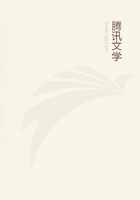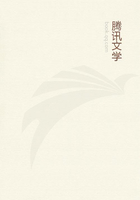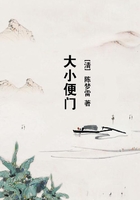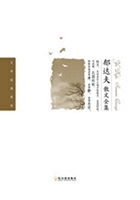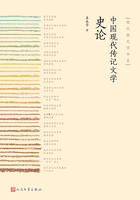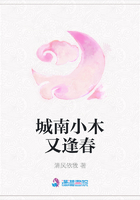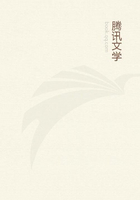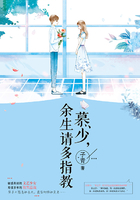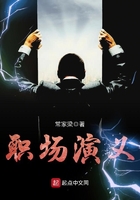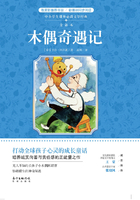Before going to Europe some events came into my life which were great surprises to me. In fact, my whole life has largely been one of surprises. I believe that any man's life will be filled with constant, unexpected encouragements of this kind if he makes up his mind to do his level best each day of his life--that is, tries to make each day reach as nearly as possible the high-water mark of pure, unselfish, useful living. I pity the man, black or white, who has never experienced the joy and satisfaction that come to one by reason of an effort to assist in making some one else more useful and more happy.
Six months before he died, and nearly a year after he had been stricken with paralysis, General Armstrong expressed a wish to visit Tuskegee again before he passed away. Notwithstanding the fact that he had lost the use of his limbs to such an extent that he was practically helpless, his wish was gratified, and he was brought to Tuskegee. The owners of the Tuskegee Railroad, white men living in the town, offered to run a special train, without cost, out of the main station--Chehaw, five miles away--to meet him. He arrived on the school grounds about nine o'clock in the evening. Some one had suggested that we give the General a "pine-knot torchlight reception." This plan was carried out, and the moment that his carriage entered the school grounds he began passing between two lines of lighted and waving "fat pine" wood knots held by over a thousand students and teachers. The whole thing was so novel and surprising that the General was completely overcome with happiness. He remained a guest in my home for nearly two months, and, although almost wholly without the use of voice or limb, he spent nearly every hour in devising ways and means to help the South. Time and time again he said to me, during this visit, that it was not only the duty of the country to assist in elevating the Negro of the South, but the poor white man as well. At the end of his visit I resolved anew to devote myself more earnestly than ever to the cause which was so near his heart. I said that if a man in his condition was willing to think, work, and act, I should not be wanting in furthering in every possible way the wish of his heart.
The death of General Armstrong, a few weeks later, gave me the privilege of getting acquainted with one of the finest, most unselfish, and most attractive men that I have ever come in contact with. I refer to the Rev. Dr. Hollis B. Frissell, now the Principal of the Hampton Institute, and General Armstrong's successor. Under the clear, strong, and almost perfect leadership of Dr. Frissell, Hampton has had a career of prosperity and usefulness that is all that the General could have wished for. It seems to be the constant effort of Dr. Frissell to hide his own great personality behind that of General Armstrong--to make himself of "no reputation" for the sake of the cause.
More than once I have been asked what was the greatest surprise that ever came to me. I have little hesitation in answering that question. It was the following letter, which came to me one Sunday morning when I was sitting on the veranda of my home at Tuskegee, surrounded by my wife and three children:--
Harvard University, Cambridge, May 28, 1896.
President Booker T. Washington, My Dear Sir: Harvard University desired to confer on you at the approaching Commencement an honorary degree; but it is our custom to confer degrees only on gentlemen who are present. Our Commencement occurs this year on June 24, and your presence would be desirable from about noon till about five o'clock in the afternoon. Would it be possible for you to be in Cambridge on that day?
Believe me, with great regard, Very truly yours, Charles W. Eliot.
This was a recognition that had never in the slightest manner entered into my mind, and it was hard for me to realize that I was to be honoured by a degree from the oldest and most renowned university in America. As I sat upon my veranda, with this letter in my hand, tears came into my eyes. My whole former life--my life as a slave on the plantation, my work in the coal-mine, the times when I was without food and clothing, when I made my bed under a sidewalk, my struggles for an education, the trying days I had had at Tuskegee, days when I did not know where to turn for a dollar to continue the work there, the ostracism and sometimes oppression of my race,--all this passed before me and nearly overcame me.
I had never sought or cared for what the world calls fame. I have always looked upon fame as something to be used in accomplishing good. I have often said to my friends that if I can use whatever prominence may have come to me as an instrument with which to do good, I am content to have it. I care for it only as a means to be used for doing good, just as wealth may be used. The more I come into contact with wealthy people, the more I believe that they are growing in the direction of looking upon their money simply as an instrument which God has placed in their hand for doing good with. I never go to the office of Mr. John D.
Rockefeller, who more than once has been generous to Tuskegee, without being reminded of this. The close, careful, and minute investigation that he always makes in order to be sure that every dollar that he gives will do the most good--an investigation that is just as searching as if he were investing money in a business enterprise--convinces me that the growth in this direction is most encouraging.
At nine o'clock, on the morning of June 24, I met President Eliot, the Board of Overseers of Harvard University, and the other guests, at the designated place on the university grounds, for the purpose of being escorted to Sanders Theatre, where the Commencement exercises were to be held and degrees conferred.
Among others invited to be present for the purpose of receiving a degree at this time were General Nelson A. Miles, Dr. Bell, the inventor of the Bell telephone, Bishop Vincent, and the Rev.

